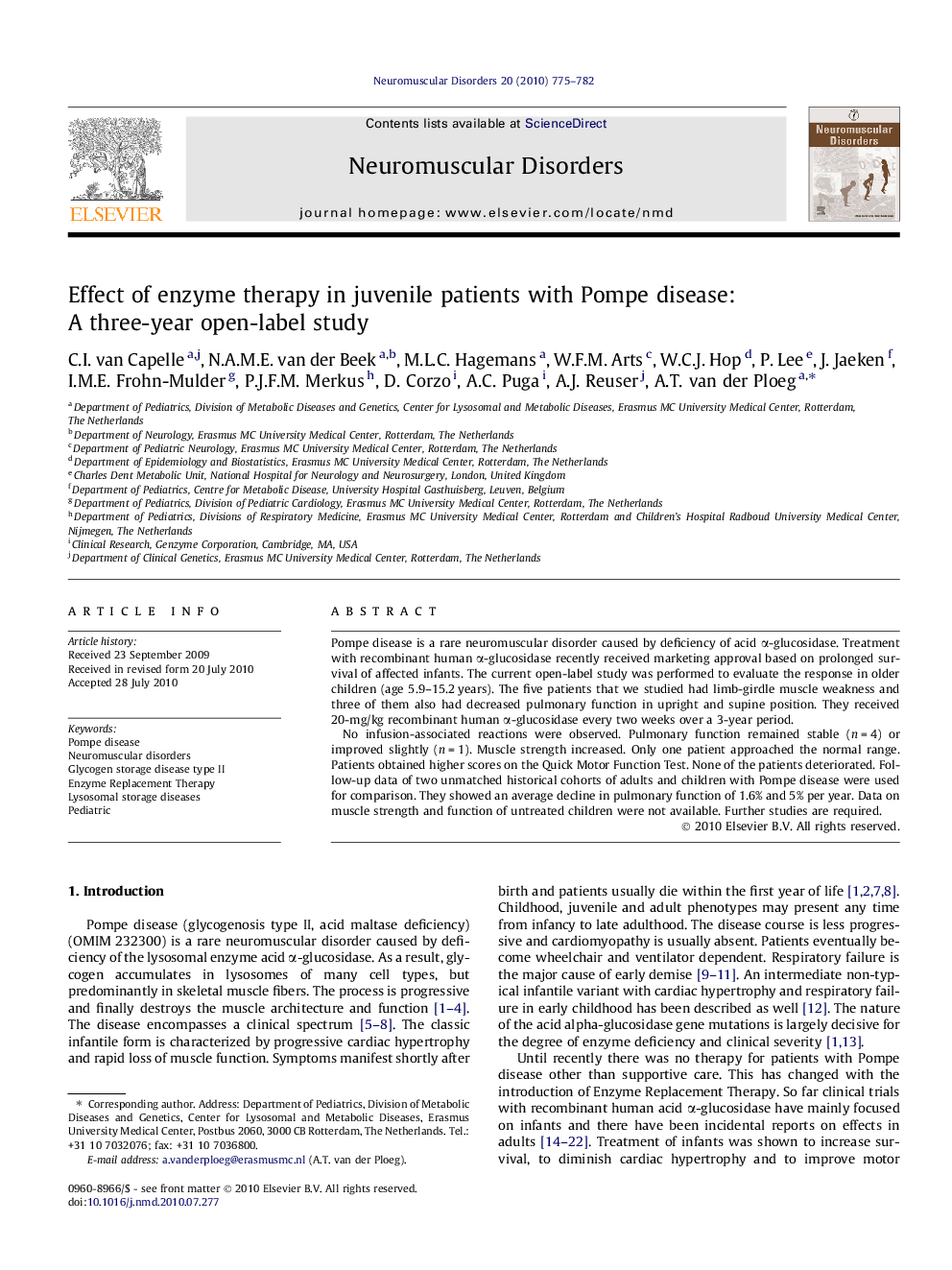| Article ID | Journal | Published Year | Pages | File Type |
|---|---|---|---|---|
| 3080114 | Neuromuscular Disorders | 2010 | 8 Pages |
Pompe disease is a rare neuromuscular disorder caused by deficiency of acid α-glucosidase. Treatment with recombinant human α-glucosidase recently received marketing approval based on prolonged survival of affected infants. The current open-label study was performed to evaluate the response in older children (age 5.9–15.2 years). The five patients that we studied had limb-girdle muscle weakness and three of them also had decreased pulmonary function in upright and supine position. They received 20-mg/kg recombinant human α-glucosidase every two weeks over a 3-year period.No infusion-associated reactions were observed. Pulmonary function remained stable (n = 4) or improved slightly (n = 1). Muscle strength increased. Only one patient approached the normal range. Patients obtained higher scores on the Quick Motor Function Test. None of the patients deteriorated. Follow-up data of two unmatched historical cohorts of adults and children with Pompe disease were used for comparison. They showed an average decline in pulmonary function of 1.6% and 5% per year. Data on muscle strength and function of untreated children were not available. Further studies are required.
